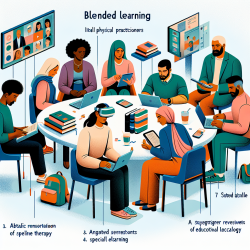Introduction
The exploration of cognitive performance through genetic lenses has taken a significant leap forward with the recent study titled "Genome-wide association study of population-standardised cognitive performance phenotypes in a rural South African community." This groundbreaking research offers a unique perspective on the genetic underpinnings of cognitive traits, particularly within African populations, which have historically been underrepresented in such studies.
The Study's Significance
This study stands out as it delves into the genetic associations of cognitive performance using a sample from a rural South African community. It highlights the importance of considering diverse ethnic backgrounds in genetic research, which can reveal unique genetic variants that influence cognitive abilities. The study identified several genetic markers associated with cognitive domains such as verbal episodic memory, executive function, and language, using data from approximately 2,246 adults.
Key Findings and Implications
One of the study's notable findings is the identification of a novel variant, rs73485231, associated with episodic memory. This variant, more prevalent in African populations, underscores the importance of including diverse genetic backgrounds in research. Practitioners can leverage these insights to better understand cognitive performance variations across different populations.
The study also emphasizes the role of educational attainment as a proxy for cognitive ability. It suggests that cognitive assessments need to be adapted to account for educational and socio-economic disparities, particularly in low-income settings. This insight is crucial for practitioners working in diverse educational contexts, as it encourages the development of more inclusive and representative cognitive assessment tools.
Practical Applications for Practitioners
- Incorporate culturally and educationally sensitive cognitive assessments to ensure accurate evaluations across diverse populations.
- Utilize genetic insights to tailor educational and therapeutic interventions, recognizing the unique genetic profiles that may influence cognitive abilities.
- Advocate for more inclusive research that encompasses a wide range of ethnic and socio-economic backgrounds to enhance the understanding of cognitive genetics.
Encouraging Further Research
This study lays the groundwork for future research into the genetic basis of cognitive performance in African populations. Practitioners are encouraged to engage with this research and consider participating in or supporting further studies that explore these genetic associations. By doing so, they can contribute to a more comprehensive understanding of cognitive genetics and its implications for education and therapy.
Conclusion
The insights gained from this genome-wide association study are invaluable for practitioners aiming to enhance their understanding of cognitive performance through a genetic lens. By embracing these findings, practitioners can improve their skills and contribute to a more inclusive and effective approach to cognitive assessment and intervention.
To read the original research paper, please follow this link: Genome-wide association study of population-standardised cognitive performance phenotypes in a rural South African community.










